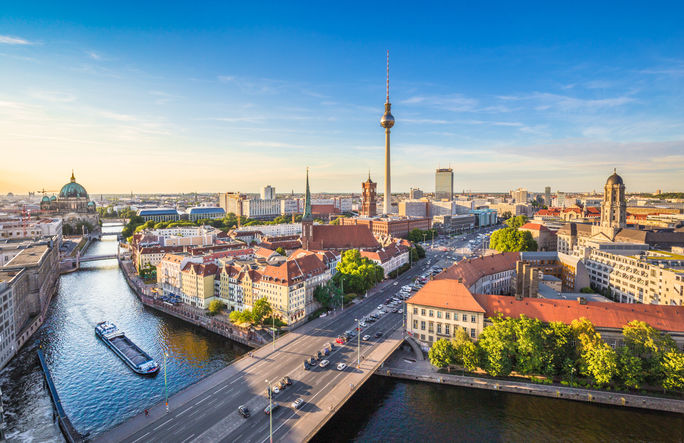Tourism in Germany Still Lags Behind Its European Neighbors

Germany’s travel and tourism industry is experiencing a much slower rebound than many other key European destinations.
Newly released data from the World Travel & Tourism Council’s (WTTC) 2024 Economic Impact Research (EIR) shows that domestic tourism is “propping up” the sector as a whole in Germany.
International travel spend in the country, meanwhile, continues to be stubbornly low, remaining below pre-pandemic levels.
Further, the WTTC said today that Germany’s travel and tourism sector has yet to recover its GDP contribution or jobs lost during the pandemic.
The global tourism body’s latest research shows that the sector’s contribution to Germany’s GDP amounted to slightly more than €453 billion ($491 billion) in 2023, which is €13.5 billion (about $14.6 billion) below 2019 levels.
Travel and tourism-related employment levels grew by about 5 percent to reach 6.18 million, according to WTTC. However, that figure is nearly 250,000 less than 2019 employment levels.
As for international visitor spending, as of 2023 it remained more than 25 percent behind 2019 with €14 billion ($15 billion) less being spent.
The one silver lining for Germany’s travel and tourism industry is its booming domestic tourism growth. Domestic visitor spending fully recovered in 2023, exceeding the 2019 level by €2.9 billion ($3.15 billion).
The WTTC said this fact is “evidence that domestic visitors have led the sector’s path toward post-pandemic recovery.”
“While Germany’s travel and tourism sector has shown signs of resilience, there is a long way to go, and the recent increase of airline passenger taxes will undoubtedly hamper the recovery,” Julia Simpson, WTTC president & CEO, said in a statement. “Domestic visitor spending has stayed strong. But taxes will only delay the recovery.”
“The German government should sit down with travel and tourism businesses to plan how to stimulate the return of international visitors as it is an important driver of the economy,” she added.

Berlin, Germany (Photo Credit: Courtesy AdobeStock)
Predictions for 2024
The current year is shaping up to be a mixed bag for Germany’s travel and tourism industry, according to WTTC data. Although the sector’s overall GDP contribution is projected to recover in 2024, the recovery will not be industry-wide.
In particular, jobs and international visitor spending will remain below 2019 levels. The WTTC forecasts that Germany’s travel and tourism industry will contribute almost €469 billion ($508 billion) to the German economy this year. That’s a meager increase of just 0.5 percent from 2019.
Additionally, employment levels are expected to increase by 160,000 this year—a figure that’s 80,000 below pre-pandemic highs.
And finally, international visitor spending in Germany will continue to lag substantially this year. WTTC is forecasting that it will remain almost 10 percent behind 2019 with a deficit of €5.1 billion ($5.5 billion) in 2024 compared to five years ago.
However, domestic visitor spending continues to be a bright spot, per WTTC. It is projected to continue growing modestly this year, with a 1.2 percent increase to reach almost €411 billion ($445 billion).
For the latest travel news, updates and deals, subscribe to the daily TravelPulse newsletter.
Topics From This Article to Explore
Related
Brits forced to pay fee to visit these 30 countries…
UK tourists will be required to pay a fee to visit 30 countries in Europe under new European Union (EU) travel rules.The rules mean British holidaymakers will n
The beautiful European island with just 148 locals
Irakleia is a beautiful island in the Minor Cyclades of Greece, nestled in the heart of the Aegean Sea and just an hour away from Naxos. Officially recorded t
Warning issued for Brits flying easyJet and Ryanair to popular…
Passengers flying with Ryanair, easyJet and British Airways should expect disruption (Picture: Urbanandsport/NurPhoto via Getty Images) Passenge










